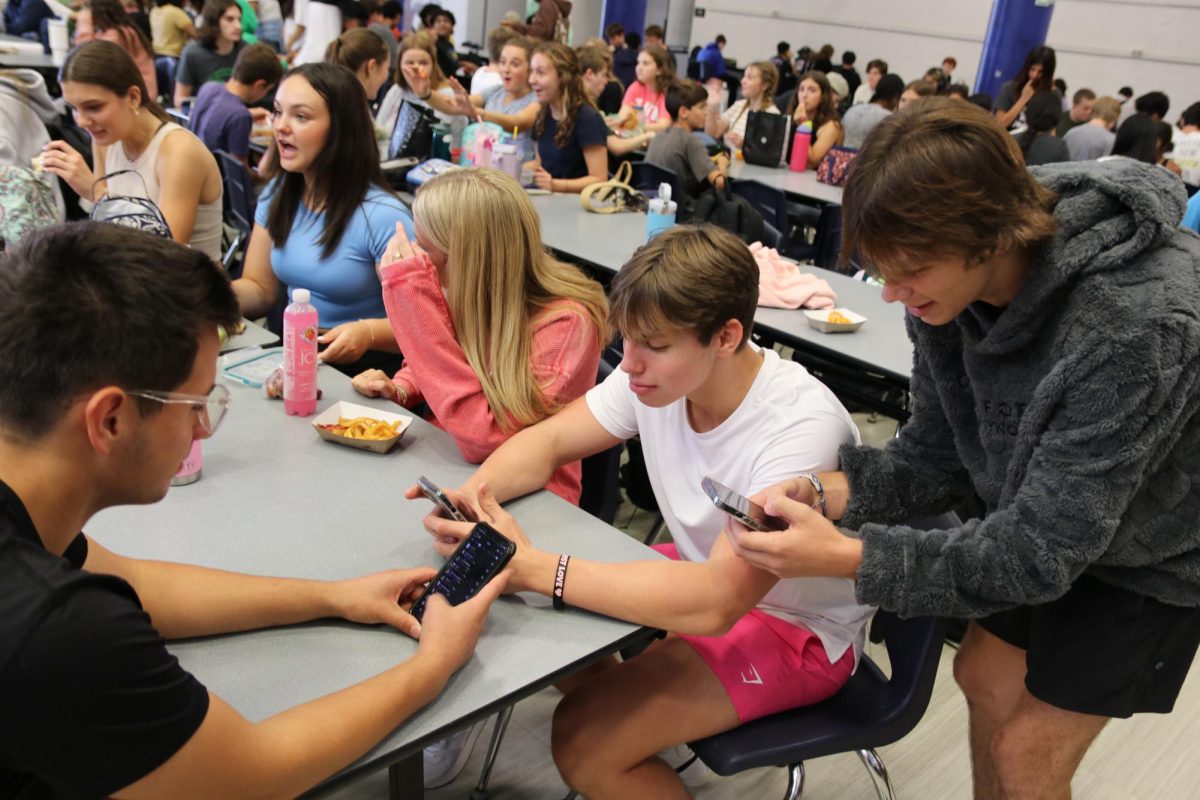While attending Crestview Middle School, Rodrigo Garcia, freshman, remembers his teachers warning him of high school’s “no tolerance for phones” policy.
“I believed them, they sounded intimidating,” Garcia said.
And as of this year, the teachers of Crestview Middle School were correct. The administration is now enforcing the cell phone policy. Now, the first offense for a student being on their phone is a referral. The second is one hour detention: furthermore, each offense results in a harsher punishment and may result in a loss of privileges, such as parking spots.
“That was part of our district direction for the year,” Principal Dr. Tracey Waeckerle said. “To figure out ways to remove those distractions within our schools.”
She said the administrators also understands that technology is a tool that, when used properly, can be helpful to students. Therefore, in addition to the enforcement of this policy, teachers are to use “Tech Red Zone” and “Tech Green Zone” signs to let their students know when having technology out is appropriate.
“We’re asking everyone to enforce it specifically during instructional time, especially because that’s when we were seeing the most distractions,” Dr. Waeckerle said.
Darcy Hachmeister, math teacher, said phones undermine learning.
“This year if phones are out, I’m going to write a referral,” Hachmeister said.
Hachmeister said phones significantly impair the academic performance and classroom behavior of students.
“My job is to make sure you’re learning, and when you’re looking at your phone, it’s obvious you’re not paying attention and learning what you need to learn,” Hachmeister said.
With upfront communication, Hachmeister said she is committed to fostering a distraction-free environment.
“It’s this way or you’re going to have to deal with consequences,” Hachmeister said. “I’m going to remind kids at the beginning of the hour, at least for the first couple weeks, put the phones in the book bag and establish that as a routine.”
Tristan Chambliss, senior, said the phone policy negatively impacts his academic performance.
“I need my phone to take notes, set reminders and use the calendar,” Chambliss said. “Now that I can’t do that, I don’t know what to do about my homework.”
Chambliss prefers using his phone rather than a notebook and computer because his phone allows him to record lectures and he is more comfortable it.
Chambliss, who said he has never had issues with phone-related distractions, relies on music to help him concentrate.
“I like listening to music because it helps me study and focus during class,” Chambliss said.
Chambliss has always managed his phone use by setting it on his desk.
“I didn’t distract others and didn’t distract myself, and I had good grades,” Chambliss said.
Marc Ostrowski, social studies teacher, understands both sides of the argument.
“A positive of the policy is it can help quell some of the cyber bullying that takes place during the school day,” Ostrowski said. “A negative of the policy is that it can hinder some students who would otherwise used their devices appropriately.”





